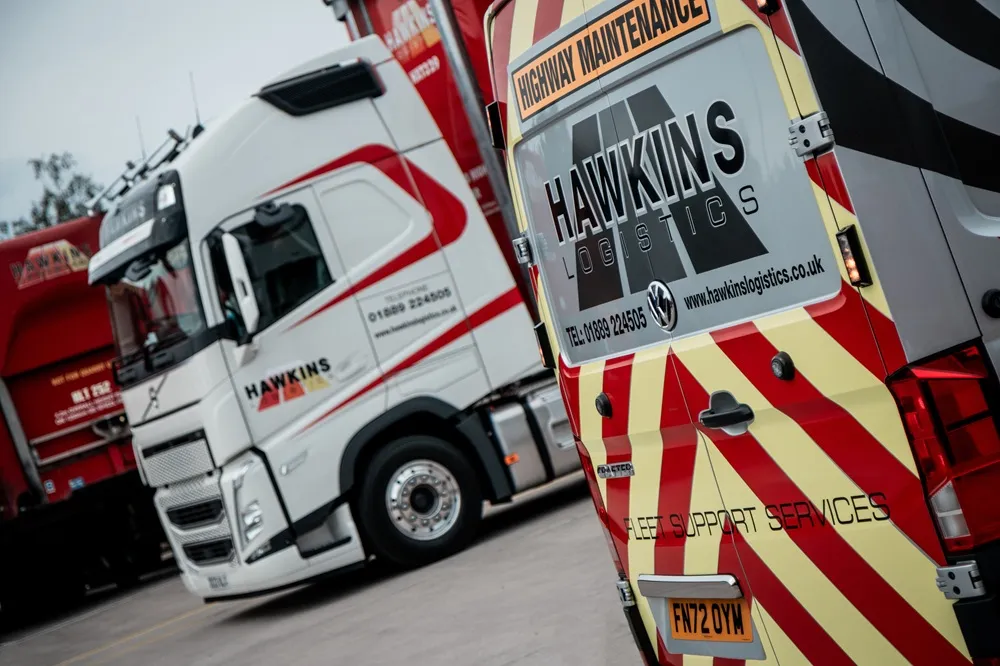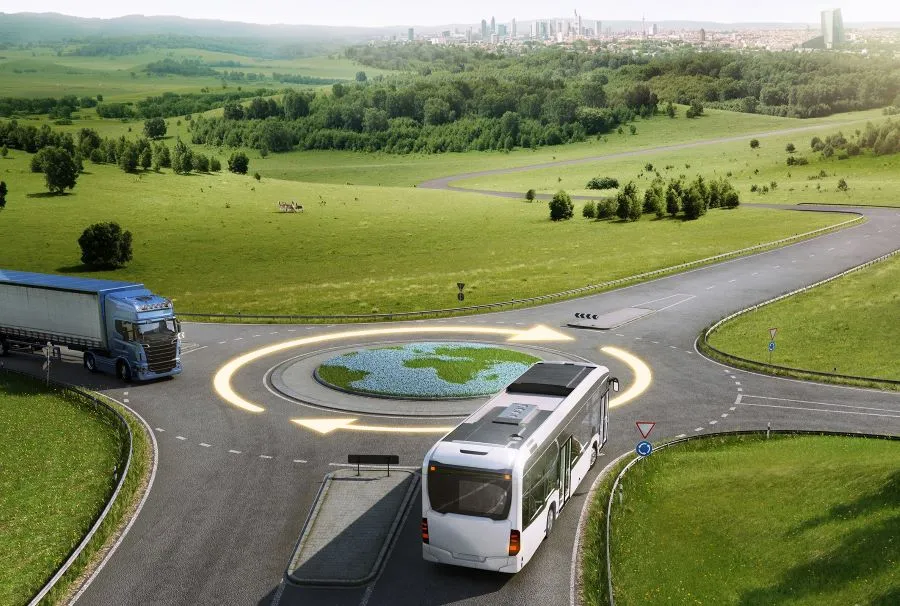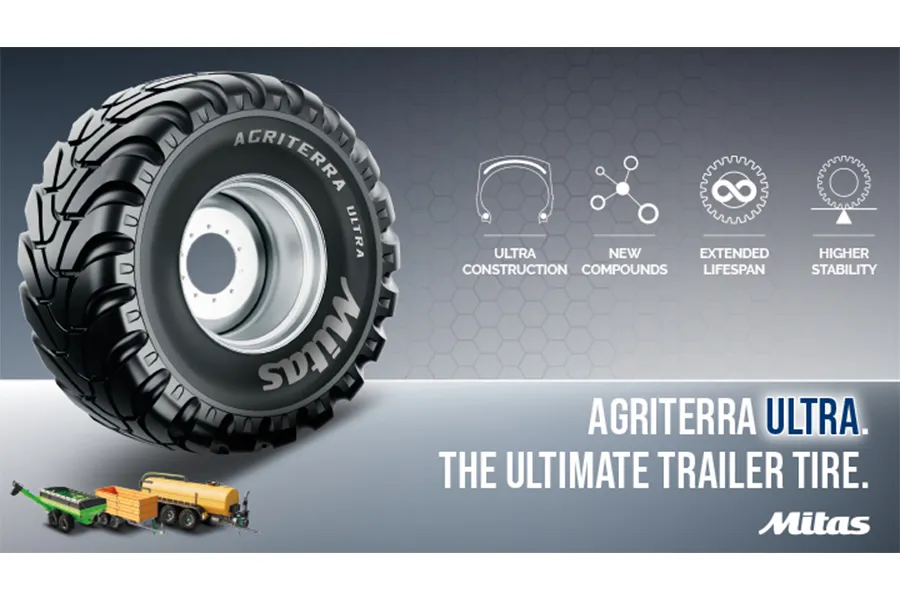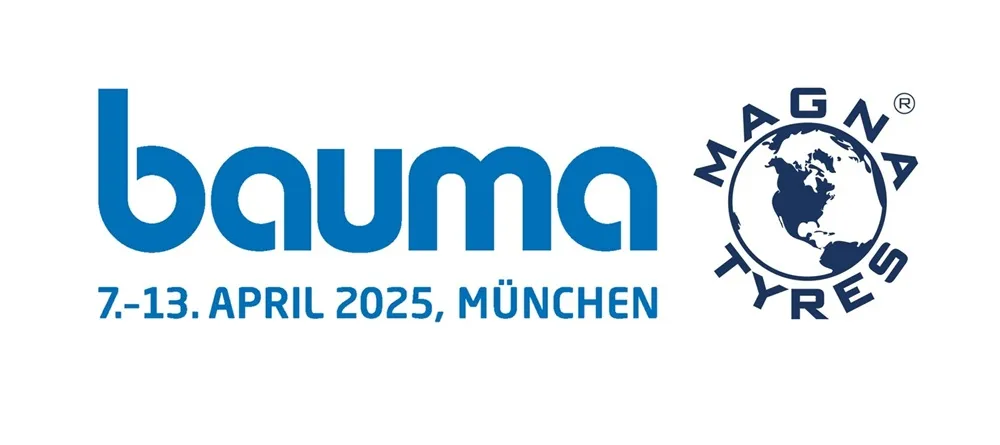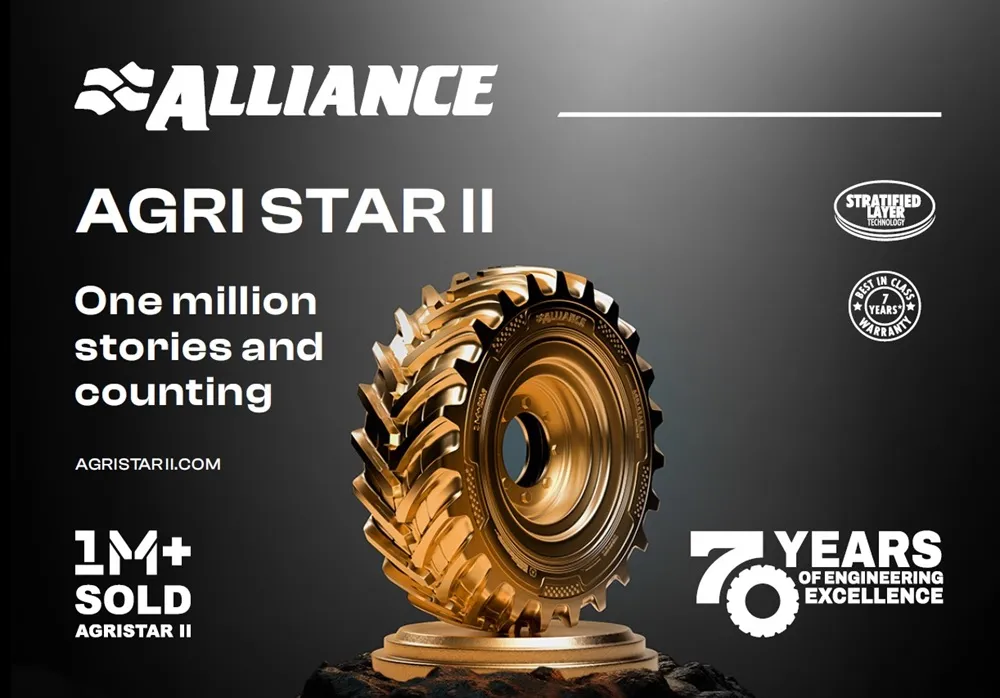Continental Tires is one of the leading global tyre manufacturers, Commercial Tyre Business put our questions on bus and coach tyres to Hinnerk Kaiser, Head of Product Development Bus and Truck Tyres at Continental.
Continental Bus and Coach Tyre Discussion
Firstly, we asked, what are the key differences between the demands for coach tyres and the demands for truck tyres? Do you see the same variations between local bus and long-haul coaches that we see in the truck sector between regional and long-haul transport?
Kaiser responded; “For all commercial mobility tyres, mileage and fuel efficiency are important performance criteria. For passengers, safety and comfort take the lead when it comes to tyre performance.
“There are major differences in application for local buses and long-haul coaches. Local buses operate more in city traffic where tyres often experience kerb contact.
“Long haul coaches, on the other hand, deliver comfortable trips, a quiet ride and safety under demanding conditions.”
With that in mind is there a differential in the criteria for the designing of a bus or coach tyre – is ride more important, or is mileage the primary concern? Are there different criteria for different markets – are the tyres for Southern Europe the same as for those sold in the Nordic countries, for example?
“PCV tyres require a perfect balance between safety, comfort, mileage, fuel efficiency and sidewall durability, according to the application. There are also regional requirements throughout EMEA depending on regulations, road, and weather conditions.” Kaiser explains.
“Additionally, with the need to fulfil legal, compliance and sustainable goals in many cities, bus companies have to maximise their efficiency and sustainability. In order to support our customers in achieving their goals, we make urban bus tyres intelligent through our digital solutions offering.”
Given the rise of electric vehicles in bus fleets, are you seeing a change in the market due to the increasing number of electric buses and coaches on the road? If so, what are the key criteria that EV operators are asking for?
“The strong demand for zero-emission electric fleets from municipalities and local transport operators, and the rapid pace of development in the electric mobility segment, mean there is also a growing need for suitable tyres.” Says, Kaiser.
“Electric buses are highly adopted in urban applications already.” He continues. “Their tyres may require higher load capabilities due to increased vehicle weight and experience additional stress due to constant acceleration and recuperation. Electric buses are quieter, which means that tyre roar must be minimised, and they require a low rolling resistance to maximise battery life.
“In our experience, EV operators are asking tyre manufacturers to keep mileage at the same level as diesel CVs. Our entire current portfolio of tyres for commercial vehicles is e-ready, meaning they are suitable for EVs.
“The Conti Urban concept bus tyre sports a higher load index and has been developed specifically for electric buses on urban routes. The Conti Urban HA3 315/60 R22.5, for example, can support up to eight metric tonnes per axle.
“In numerous collaborations with our customers – the bus operators – we are developing tyres that feature the very latest technology for series-production electric vehicles.”
Continental is a strong player in the bus sector, where would you say your bus and coach offer placed you in European market standings? Is there a plan to increase overall market share, and how will you do that?
“We have a strong share in the Passenger Carrying Vehicle (PCV) segment with our tyres. Already this year, we have made our urban bus tyres intelligent, setting the standard in the industry. We are also taking steps to launch a new generation in the next few years.” Explained Kaiser.
“This new generation will follow our promise, focusing on expertise, tailormade solutions and partnerships with our customers.”
Continental is one of the leading tyre manufacturers that has taken retreading into its internal processes. What are your company’s thoughts on the retreading of bus and coach tyres? If you manage retreads, do you ensure that only bus and coach tyres go back to bus and coach fleets?
“We are offering ContiLifeCycle products in the PCV segment with hot and cold retread solutions. As the casings are tyre size and geometry dependent, only selected casings approved by thorough quality checks can be used in retread solutions. Ultimately, it is a sustainable solution.” Says Kaiser.
“Retreaded bus tyres can help to reduce CO2 emissions, air pollution, and reduce the consumption of water and other natural resources. Compared to a new tyre, a retread saves up to 70 per cent of required materials, 24 per cent of CO2 emissions and 19 per cent of water. With our premium ContiRe and ContiTread solutions, we use the motto: “Looks like new, runs like new”.”
Following on from retreading, with is a first step in recycling, Commercial Tyre Business asked about Continental’s approach to its bus and coach tyres in its sustainability strategy.
Kaiser responded; “Sustainability is an integral part of Continental Tires “Vision 2030” strategy program. Our goal is to be the most progressive tyre company in terms of environmental and social responsibility by 2030.
“An essential raw material for excellent tyre functionality remains natural rubber. We are committed to responsibly sourcing natural rubber and proactively strive to minimise all environmental, human rights and social risks that we identify along our global natural rubber supply chain.
“We systematically invest in research and development in the fields of innovative technologies, alternative materials and environmentally compatible production processes. Through these efforts, we are aiming for a gradual transition to 100 percent sustainably produced materials in our tyre products, as well as a 100 percent responsible supply chain by 2050 at the latest.
“We believe that the circular economy is the model of the future. That is why we are developing innovative methods that enable material to be recovered, recycled, and reused. We are the first tyre manufacturer to use recycled polyester yarn obtained from PET plastic bottles in series tyre production.
“Continental’s sustainable Conti Urban concept tyre, which is designed for electrified city buses and delivery vehicles in urban environments, celebrated its world premiere at the IAA Transportation 2022. Already approved for road use, this concept tyre contains around 50 percent renewable and recycled feedstock. All the materials used could potentially be deployed in series production in the near future. The tread of the Conti Urban – the part of the tyre that is in contact with the road – contains 68 percent renewable materials, including rapeseed oil, silica obtained from the ash of rice husks and responsibly sourced natural rubber.”
We could not finish this article without asking about digital technology. Continental is one of the leaders in digital technology in tyres – is this an area that the bus and coach fleet operators are showing an interest in, and if so, what does Conti have to offer the operators?
“Innovative and interconnected services are the basis of future mobility. More and more transport companies are using digital solutions for their fleets. We combine our tyre expertise with digital solutions by monitoring tyre pressure and temperature through sensors. In doing so, we can help to ensure that tyres are used in optimal service conditions, thereby maximising fuel efficiency and longevity. For the tyre to perform to its fullest, it has to be properly monitored and maintained. Our digital solutions offer fleets the chance to lower the consumption of tyres and fuel, which plays into their sustainability goals.” Said Kaiser.
“ContiConnect 2.0 is the latest generation of our comprehensive virtual tyre management system. Thanks to continuous digital condition monitoring, the system helps to ensure that an operator’s tyres perform at their best. This can save fuel, cut CO2 emissions, and prevent unscheduled tyre changes and workshop visits, as well as the costly vehicle downtime that this entails. Fleets also benefit from the opportunities offered by predictive maintenance.
“We will introduce our Urban intelligent bus tyres in the second half 2023. These is our next steps to scale digitalisation.” Concluded Kaiser.




